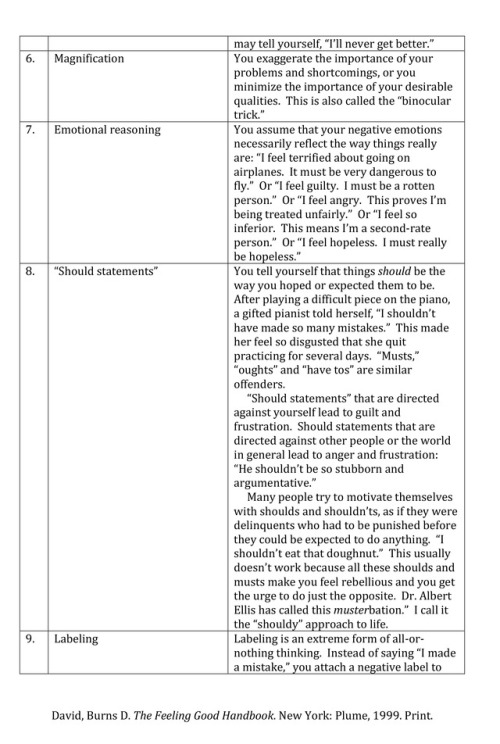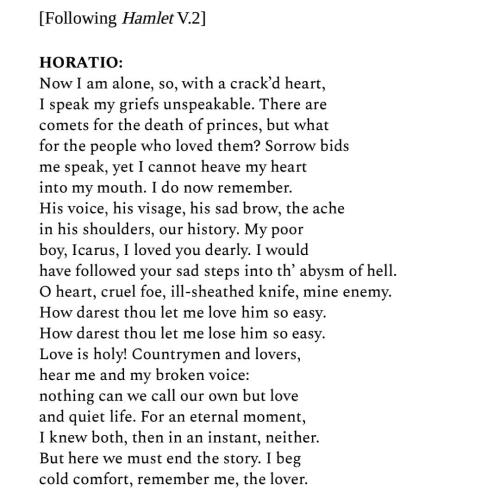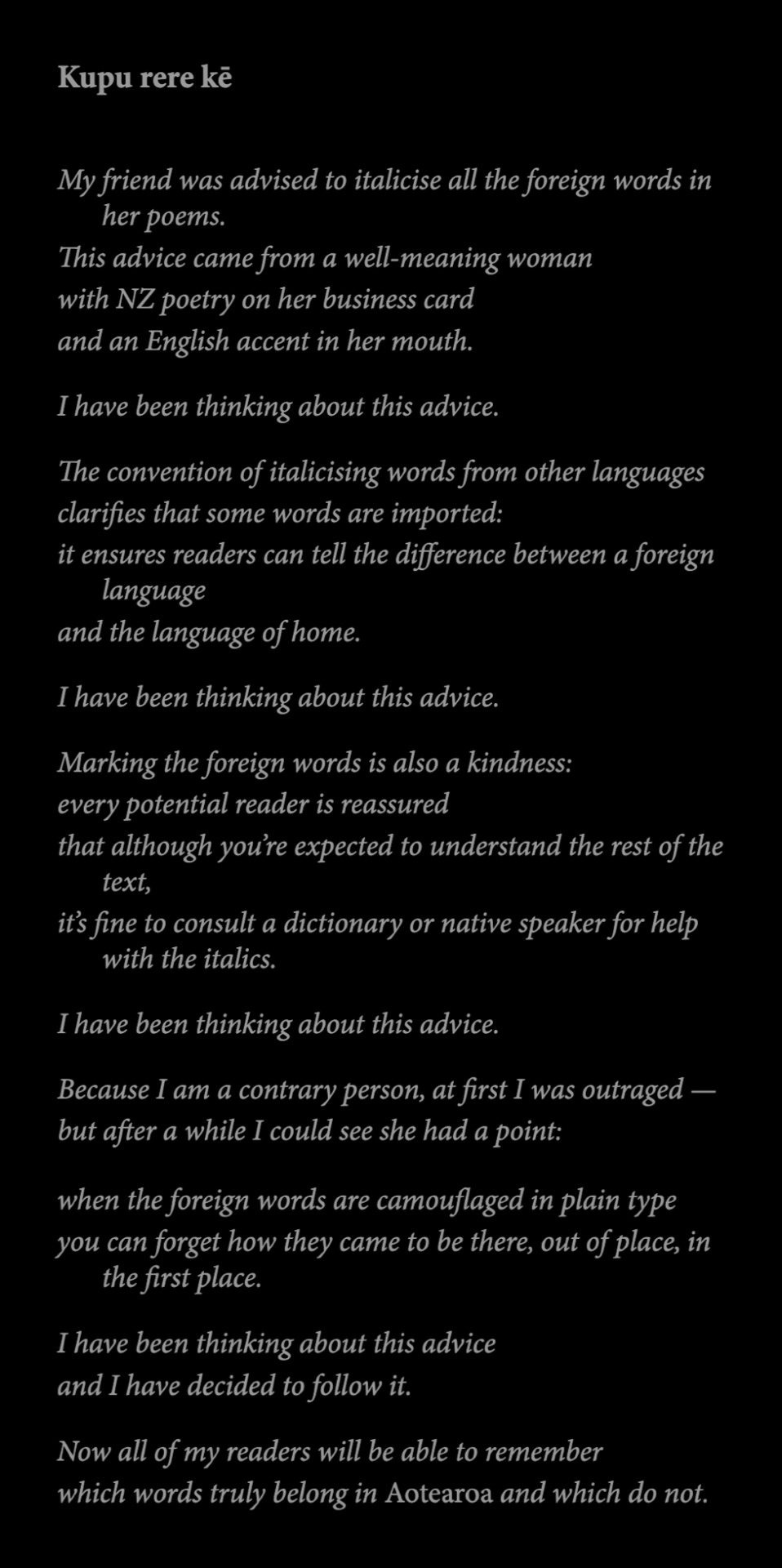I Recently Started Listening To Kosher Queers, A Podcast With “at Least Two Jews And Generally More
I recently started listening to Kosher Queers, a podcast with “at least two Jews and generally more than three opinions!” Both hosts are trans and queer, and they give their takes on the weekly Torah portions through this lens. Reoccurring segments include Rating G-d’s Writing, where they rate the parsha based on an arbitrarily designed scale, and Perchik Corner, where one of them gives a communist interpretation of the parsha. It’s very fun, and I highly recommend checking it out.
More Posts from Not-this-one and Others


During my first month with my therapist, I was given this worksheet to read and work on. She noticed that while I was talking with her, that my thoughts followed a lot of these. I wasn’t aware that my anxiety had brought me down paths of low self-worth and stinky thinking. After a couple of weeks of talking with her, she gave me this worksheet to work on.

While, at first, I thought these weren’t going to work out, I was very surprised to see just how easy they were to use . My homework at that time was to identify which sort of thinking I used on the regular and which ones would best challenge them for me. So, what do you think? Do any of the maladaptive thinking patterns sound like you? which ways would you like to untwist your thinking?
finding out there's a frankenstein ballet and that it was in october of last year…DEVASTATING



look at this. look at these. im foaming at the mouth
Writing advice #?: Have your characters wash the dishes while they talk.
This is one of my favorite tricks, picked up from E.M. Forester and filtered through my own domestic-homebody lens. Forester says that you should never ever tell us how a character feels; instead, show us what those emotions are doing to a character’s posture and tone and expression. This makes “I felt sadness” into “my shoulders hunched and I sighed heavily, staring at the ground as my eyes filled with tears.” Those emotions-as-motions are called objective correlatives. Honestly, fic writers have gotten the memo on objective correlatives, but sometimes struggle with how to use them.
Objective correlatives can quickly become a) repetitive or b) melodramatic. On the repetitive end, long scenes of dialogue can quickly turn into “he sighed” and “she nodded” so many times that he starts to feel like a window fan and she like a bobblehead. On the melodramatic end, a debate about where to eat dinner can start to feel like an episode of Jerry Springer because “he shrieked” while “she clenched her fists” and they both “ground their teeth.” If you leave the objective correlatives out entirely, then you have what’s known as “floating” dialogue — we get the words themselves but no idea how they’re being said, and feel completely disconnected from the scene. If you try to get meaning across by telling us the characters’ thoughts instead, this quickly drifts into purple prose.
Instead, have them wash the dishes while they talk.
To be clear: it doesn’t have to be dishes. They could be folding laundry or sweeping the floor or cooking a meal or making a bed or changing a lightbulb. The point is to engage your characters in some meaningless, everyday household task that does not directly relate to the subject of the conversation.
This trick gives you a whole wealth of objective correlatives. If your character is angry, then the way they scrub a bowl will be very different from how they’ll be scrubbing while happy. If your character is taking a moment to think, then they might splash suds around for a few seconds. A character who is not that invested in the conversation will be looking at the sink not paying much attention. A character moderately invested will be looking at the speaker while continuing to scrub a pot. If the character is suddenly very invested in the conversation, you can convey this by having them set the pot down entirely and give their full attention to the speaker.
A demonstration:
1
“I’m leaving,” Anastasia said.
“What?” Drizella continued dropping forks into the dishwasher.
2
“I’m leaving,” Anastasia said.
Drizella paused midway through slotting a fork into the dishwasher. “What?”
3
“I’m leaving,” Anastasia said.
Drizella laughed, not looking up from where she was arranging forks in the dishwasher. “What?”
4
“I’m leaving,” Anastasia said.
The forks slipped out of Drizella’s hand and clattered onto the floor of the dishwasher. “What?”
5
“I’m leaving,” Anastasia said.
“What?” Drizella shoved several forks into the dishwasher with unnecessary force, not seeming to notice when several bounced back out of the silverware rack.
See how cheaply and easily we can get across Drizella’s five different emotions about Anastasia leaving, all by telling the reader how she’s doing the dishes? And all the while no heads were nodded, no teeth were clenched.
The reason I recommend having it be one of these boring domestic chores instead of, say, scaling a building or picking a lock, is that chores add a sense of realism and are low-stakes enough not to be distracting. If you add a concurrent task that’s high-stakes, then potentially your readers are going to be so focused on the question of whether your characters will pick the lock in time that they don’t catch the dialogue. But no one’s going to be on the edge of their seat wondering whether Drizella’s going to have enough clean forks for tomorrow.
And chores are a cheap-n-easy way to add a lot of realism to your story. So much of the appeal of contemporary superhero stories comes from Spider-Man having to wash his costume in a Queens laundromat or Green Arrow cheating at darts, because those details are fun and interesting and make a story feel “real.” Actually ask the question of what dishes or clothing or furniture your character owns and how often that stuff gets washed. That’s how you avoid reality-breaking continuity errors like stating in Chapter 3 that all of your character’s worldly possessions fit in a single backpack and in Chapter 7 having your character find a pair of pants he forgot he owns. You don’t have to tell the reader what dishes your character owns (please don’t; it’s already bad enough when Tolkien does it) but you should ideally know for yourself.
Anyway: objective correlatives are your friends. They get emotion across, but for low-energy scenes can become repetitive and for high-energy scenes can become melodramatic. The solution is to give your characters something relatively mundane to do while the conversation is going on, and domestic chores are not a bad starting place.
Oh my gosh. I just found this website that walks you though creating a believable society. It breaks each facet down into individual questions and makes it so simple! It seems really helpful for worldbuilding!
Y’ever read something and have understanding that has eluded you interminably suddenly stop, curl up, and snuggle neatly into a fold in your brain because a new way way opened to it?


PROMPTS
6th - Proposals / Food tasting / "This? Perfect"
7th - Bachelor(ette) party / Speeches / “You really want to do this?”
8th - Anniversary / Fireworks / “You're so beautiful”
9th - Engagement party / Love letters / “Of course I will”
10th - Making vows / Music / “Slow down”
11th - Choosing rings / Wedding night / “Kiss me”
12th - Honeymoon / Flowers / “Forever”

i was tasked with creating a shakespeare scene/monologue using only lines from other plays + ended up getting a perfect 100 for this lmao
@jeynegrey told me to post this so i had to comply
(annotations under the cut)
Keep reading

the notes are broken 😂
readings: essays & articles
reassuring ghosts and haunted houses
fish recorded singing dawn chorus on reefs just like birds
what people around the world dream about
poet and philosopher david whyte on anger, forgiveness, and what maturity really means
oranges are orange, salmon are salmon
how memories persist where bodies and even brains do not
the avant-garde musical legacy of the moomins
the weight of our living: on hope, fire escapes, and visible desperation
disturbed minds and disruptive bodies
what is better ー a happy life or a meaningful one?
after my dad died, i started sending him emails. months later, someone wrote me back
on the igbo art of storytelling
what the caves are trying to tell us
promethean beasts — how animal uses of fire help illuminate human pyrocognition
the art of loving and losing female friends
on memorizing poetry
the ecological imagination of hayao miyazaki
reading in the age of constant distraction
holly warburton illustrates tender moments of love and light
romancing the fig: what one fruit can tell us about love, life and human civilization
mystery and birds: 5 ways to practice poetry
can a plant remember? this one seems to — here's the evidence
why female cannibals frighten and fascinate
when you give a tree an email adress
fear not — horror movies build community and emotional resilience

Alice Te Punga Somerville, Always Italicise: How to Write While Colonised - Kupu rere kē

-
 blitheringmcgonagall liked this · 1 year ago
blitheringmcgonagall liked this · 1 year ago -
 a-hundred-jewels reblogged this · 1 year ago
a-hundred-jewels reblogged this · 1 year ago -
 a-hundred-jewels liked this · 1 year ago
a-hundred-jewels liked this · 1 year ago -
 sparks-in liked this · 3 years ago
sparks-in liked this · 3 years ago -
 hopefully-this-url-isnt-taken reblogged this · 4 years ago
hopefully-this-url-isnt-taken reblogged this · 4 years ago -
 the-falling-angel-the-rising-ape reblogged this · 5 years ago
the-falling-angel-the-rising-ape reblogged this · 5 years ago -
 thesoulcomeshome reblogged this · 5 years ago
thesoulcomeshome reblogged this · 5 years ago -
 honeysuckle-venom reblogged this · 5 years ago
honeysuckle-venom reblogged this · 5 years ago -
 nebulouswinds reblogged this · 5 years ago
nebulouswinds reblogged this · 5 years ago -
 pixelcurious liked this · 5 years ago
pixelcurious liked this · 5 years ago -
 fishyfoo102 liked this · 5 years ago
fishyfoo102 liked this · 5 years ago -
 laylahflandesv reblogged this · 5 years ago
laylahflandesv reblogged this · 5 years ago -
 laylahflandesv liked this · 5 years ago
laylahflandesv liked this · 5 years ago -
 my-dress-is-on-fire liked this · 5 years ago
my-dress-is-on-fire liked this · 5 years ago -
 littlearcher-girl liked this · 5 years ago
littlearcher-girl liked this · 5 years ago -
 thcologist reblogged this · 5 years ago
thcologist reblogged this · 5 years ago -
 friendlyfag liked this · 5 years ago
friendlyfag liked this · 5 years ago -
 anabundanceofem liked this · 5 years ago
anabundanceofem liked this · 5 years ago -
 thewordwielder liked this · 5 years ago
thewordwielder liked this · 5 years ago -
 sawftdemon liked this · 5 years ago
sawftdemon liked this · 5 years ago -
 siennamain liked this · 5 years ago
siennamain liked this · 5 years ago -
 obsessive-bear-walking liked this · 5 years ago
obsessive-bear-walking liked this · 5 years ago -
 zombiesjudaismblog reblogged this · 5 years ago
zombiesjudaismblog reblogged this · 5 years ago -
 wrogs liked this · 5 years ago
wrogs liked this · 5 years ago -
 zombiequeer liked this · 5 years ago
zombiequeer liked this · 5 years ago

please follow my main blog @kazoo-world this is just a pile of references for me
53 posts